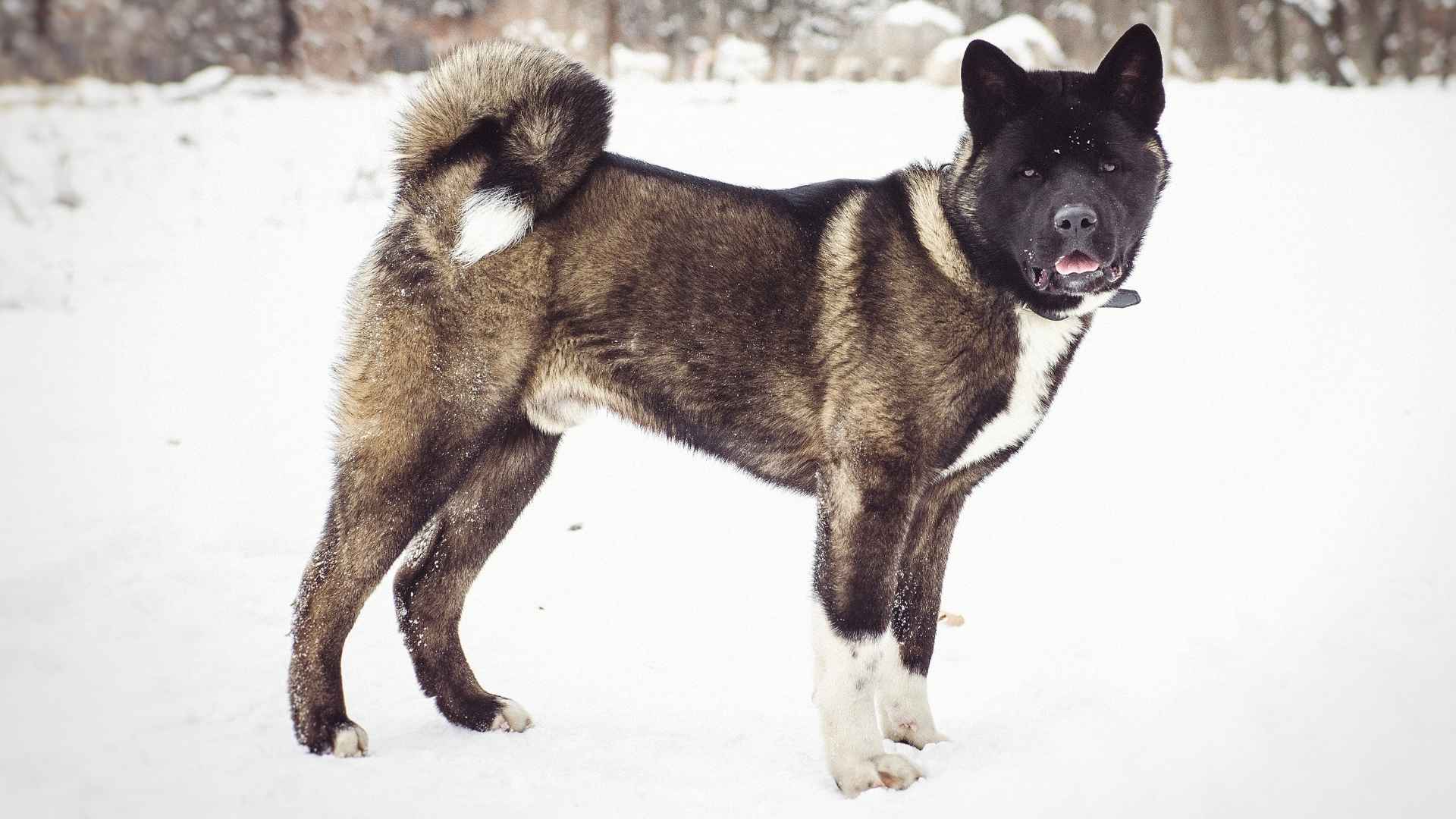Having a dog that barks at strangers is cool and all… until that “guard dog mode” turns into snapping at your neighbor’s kids or lunging at the mailman. Yeah, not cute. We can safely say some of these breeds are the worst guard dog breeds for families.
But when you throw young kids, other pets, or even rough play into the mix, things can go from protective to problematic real quick. And while certain dog breeds are loyal companions and good at what they do (AKA guarding), not all of them make good guard dogs for families.
Worst Guard Dog Breeds For Families
If you are in search of a dog who can protect your home without stressing out your toddlers or guests, you will want to steer clear of certain breeds. We have compiled a list of some of the worst dog breeds for families, because not every “protector” plays well with others.
1. Weimaraner
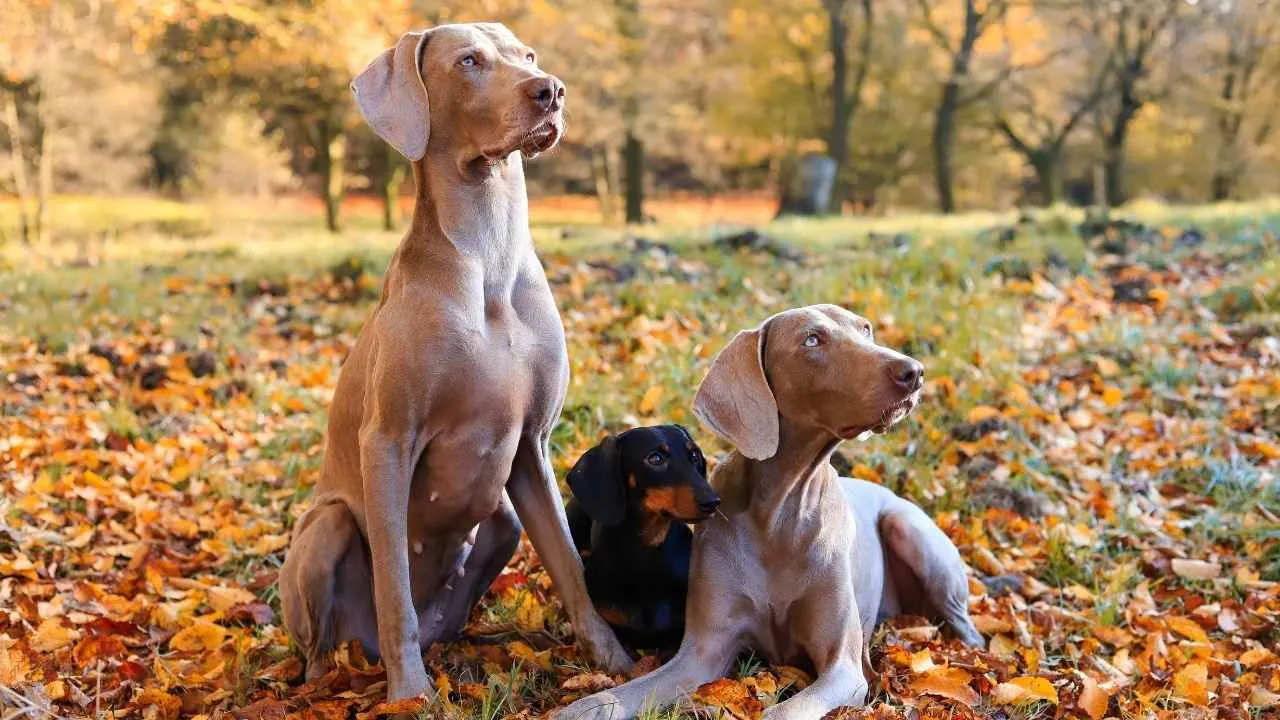
These elegant gray-coated beauties, often known as “gray ghosts,” look like something out of a painting. But behind that regal gaze is a whole lotta energy and anxiety.
According to the American Kennel Club (AKC), they were born as hunting dogs… to hunt big game, and they are pretty good at it. It does not mean they would always be in hunt mode while at home, but this trait is not exactly ideal for playdates with small children or Sunday BBQs.
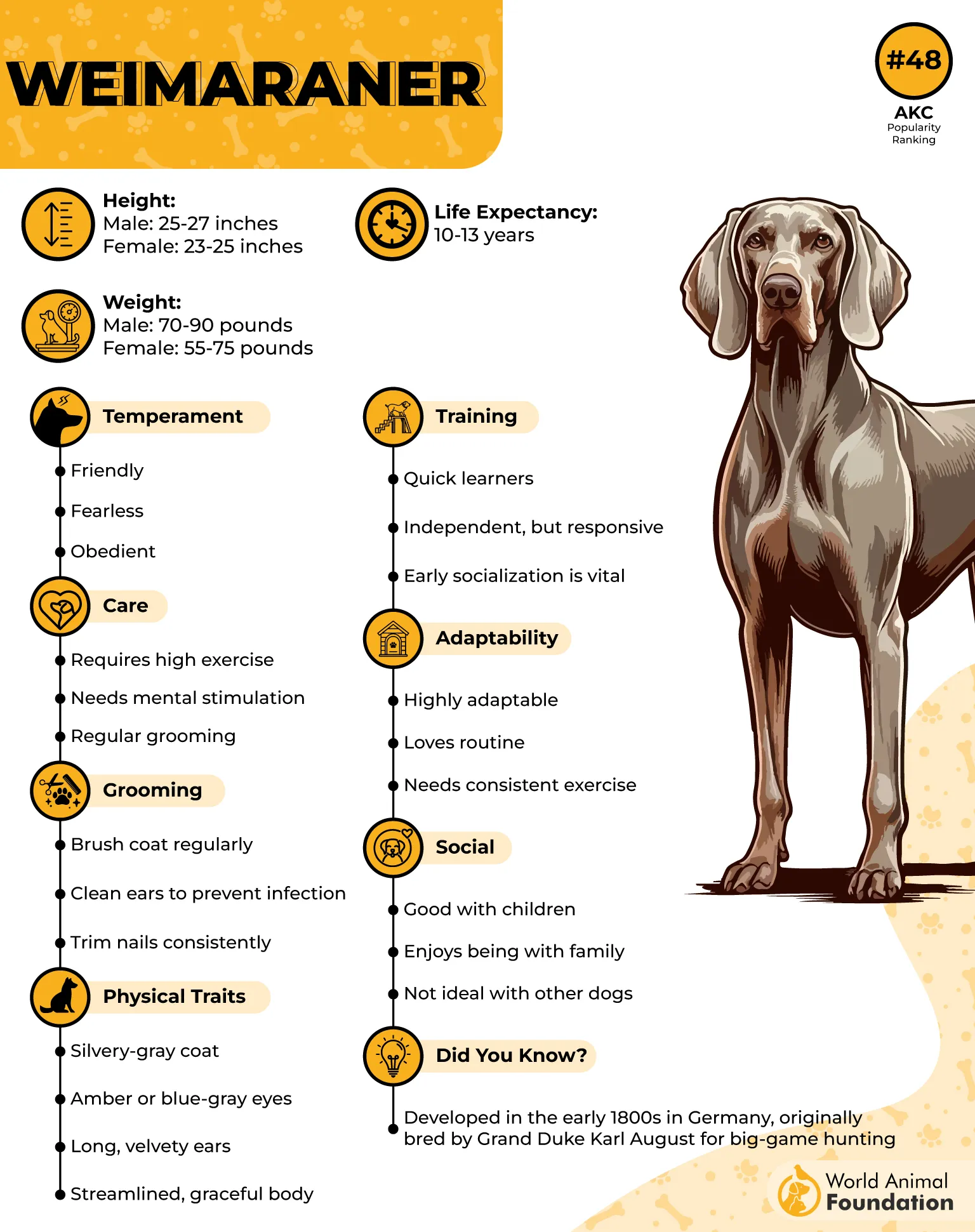
Why are they not great for families?
Extremely high energy, they need mental stimulation constantly
Can act aggressively when bored or anxious
Overly protective of their humans, not yours
Known for being a bit too “extra” with strangers and unfamiliar faces
They can be super loyal, but when you are dealing with kids running around and unexpected guests, their natural protectiveness can backfire. Not the calm family protector you were hoping for.
2. Akita
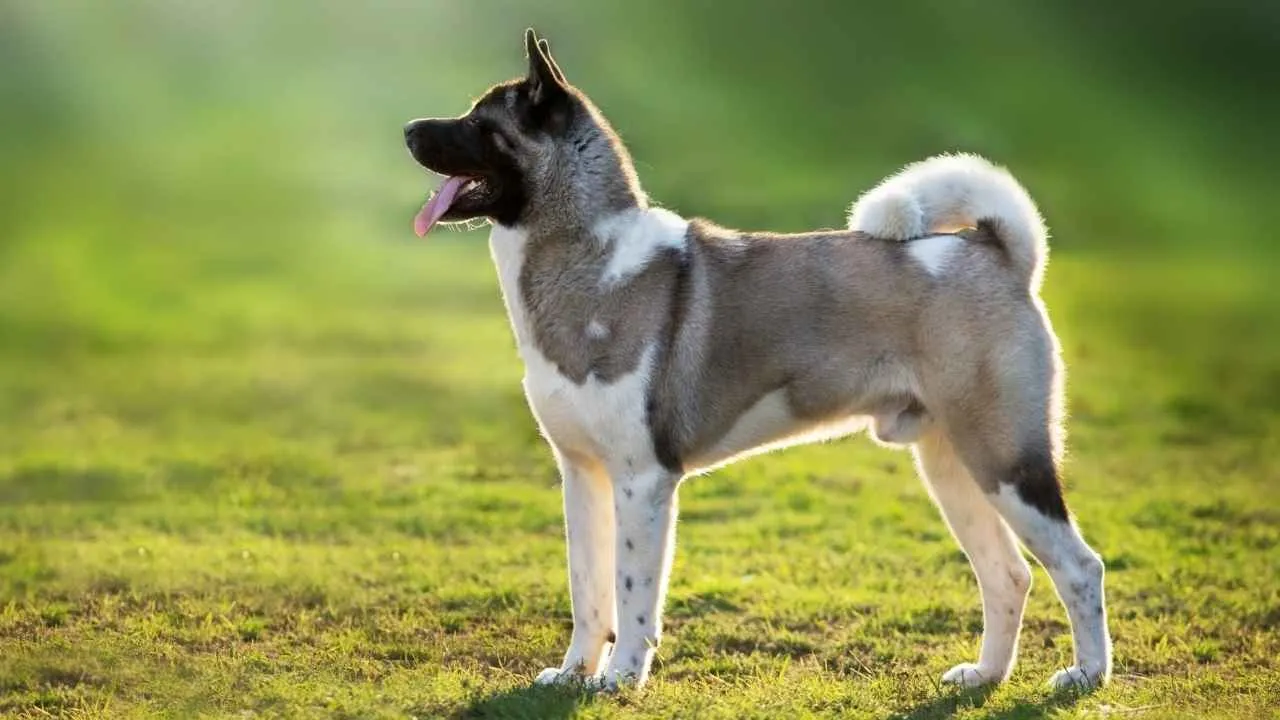
Akitas are dignified, fluffy, and very serious about their loyalty. Maybe a little too serious. Originally from Japan, these powerful dogs were bred to guard royalty and nobility. But modern family chaos? That’s not their thing. The years of guarding instincts can be difficult to manage when other kids come over to play.
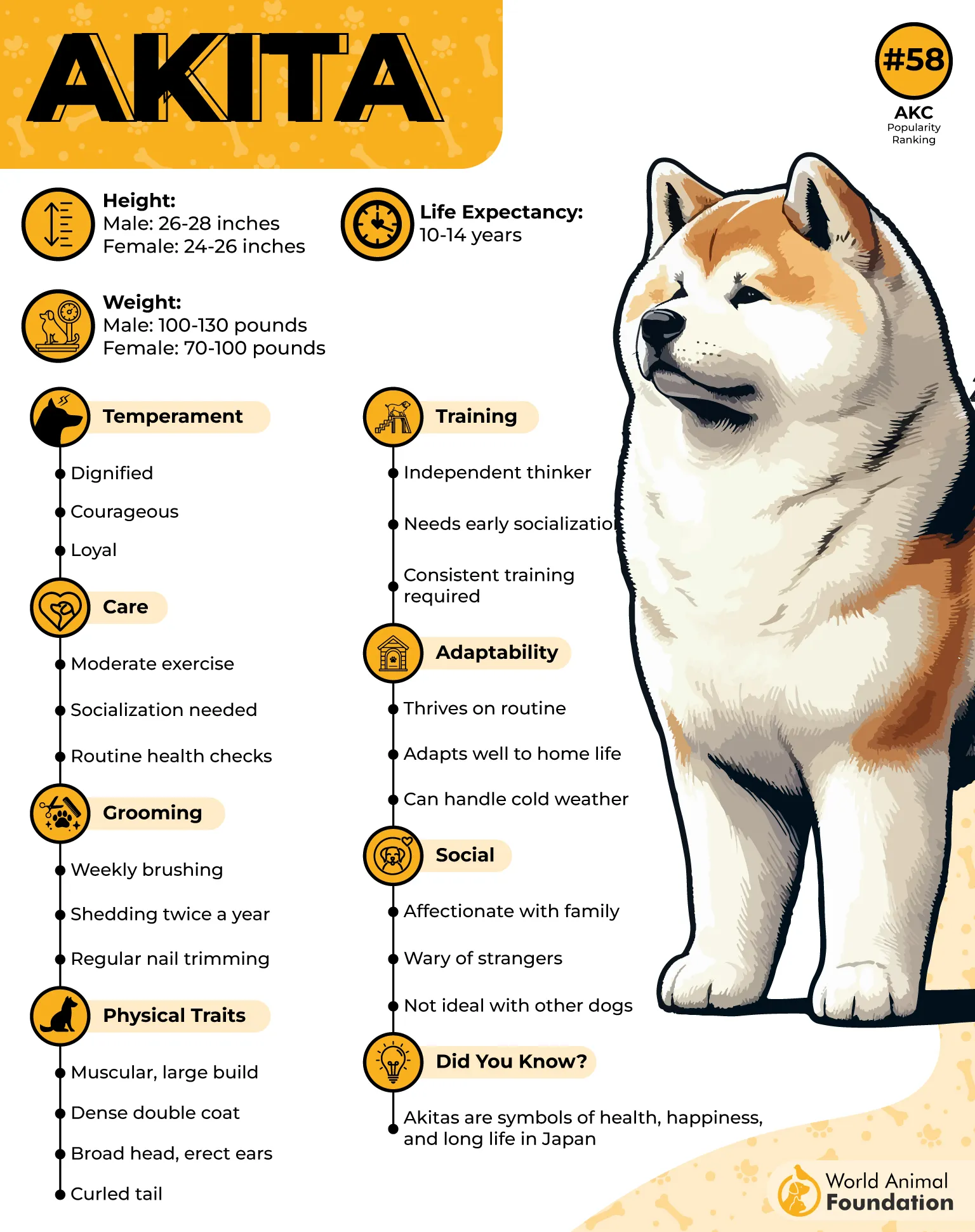
Why are they not great for families?
Known for aggression toward other dogs and strangers
Have a strong prey drive, which does not mix well with small kids or pets
Need firm and proper training from an early age
Can be extremely strong-willed and dominant, as noted by PetMD
Honestly, Akitas are like that one strict grandpa; they love you, but they are not here for playdates or any chaos. Not exactly ideal when you have small children bouncing around.
3. Alaskan Malamute
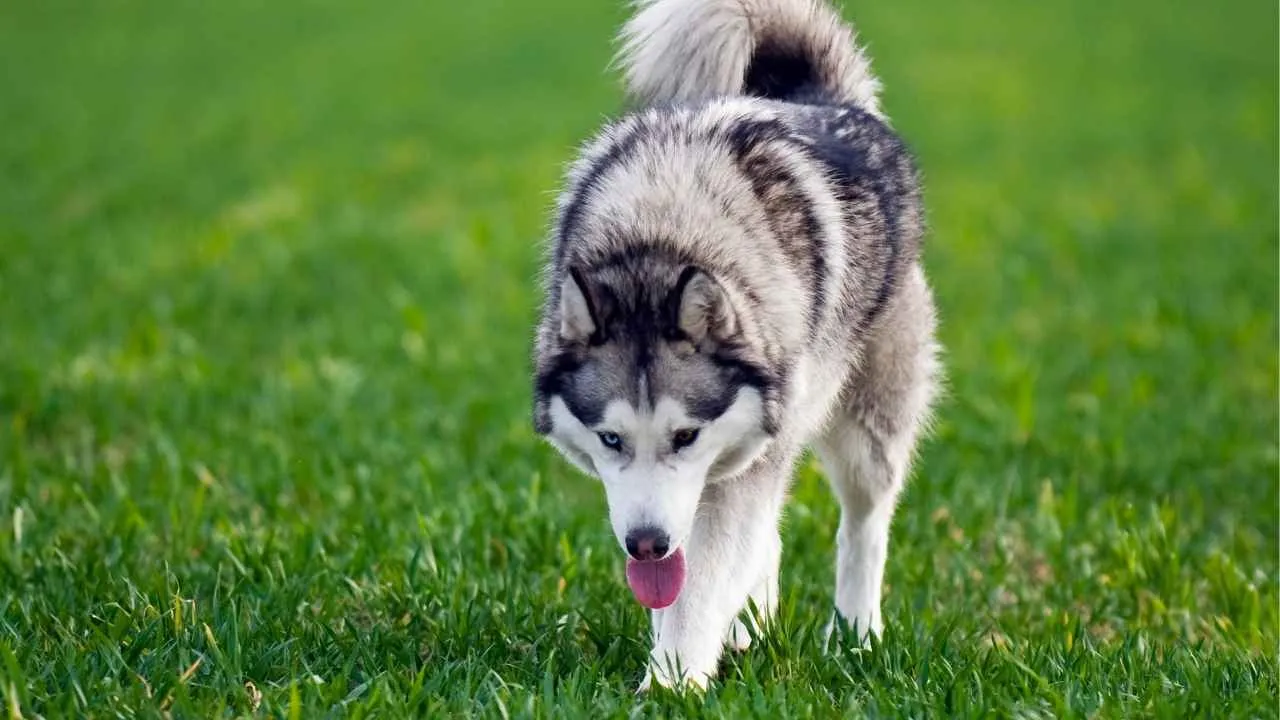
Big. Beautiful. And built to haul sleds. Not babysit. Alaskan Malamute and Siberian Husky may look alike and behave quite similarly as well. Like a Siberian Husky, Alaskan Malamutes like to play rough, and they may get even rougher if their exercise needs are not met properly.
They have got energy for days and love the outdoors, but according to Britannica, they may not be the gentle giants you hope to have in a family with children.
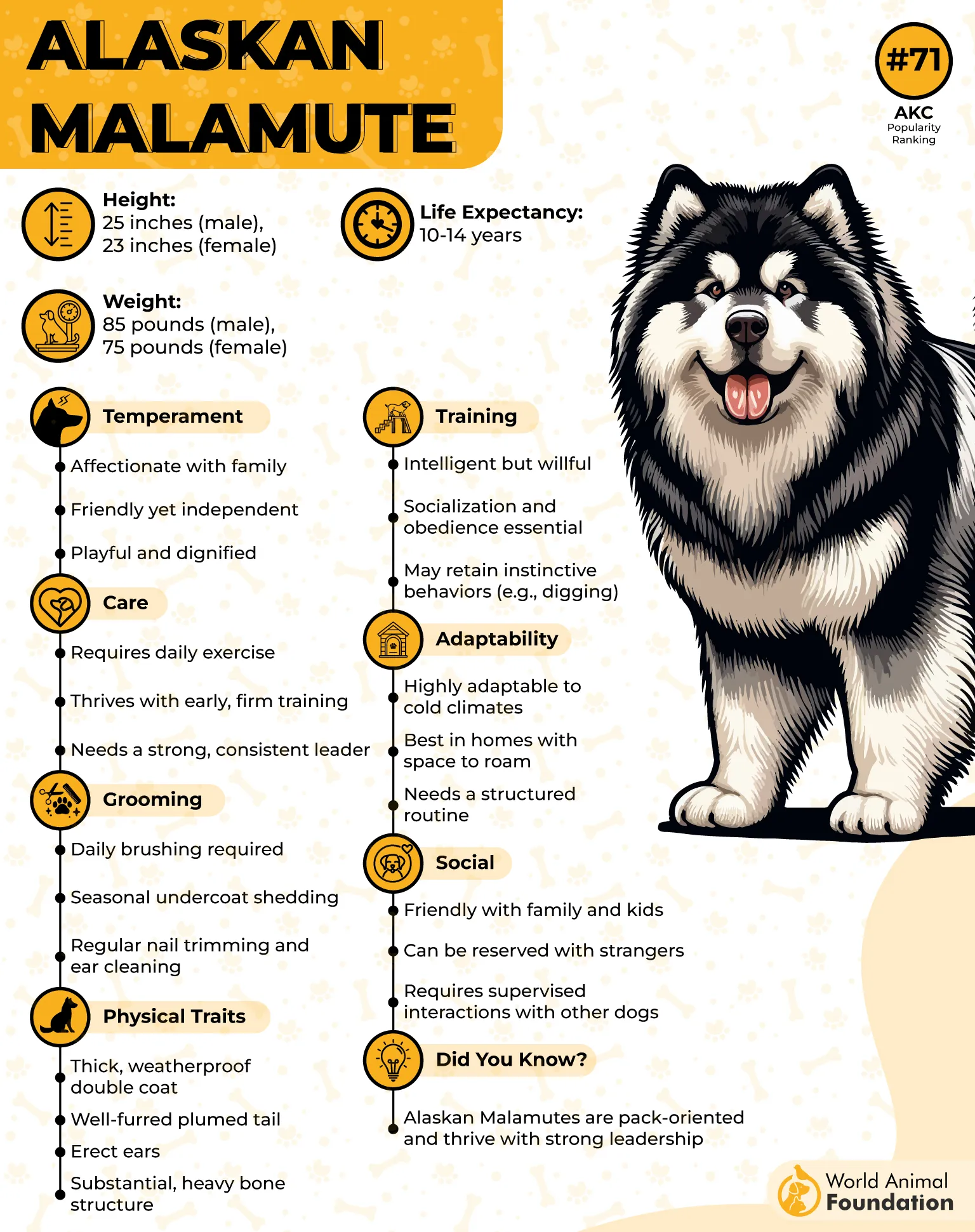
Why are they not great for families?
Need tons of mental stimulation and outdoor activity
Can become destructive when bored (say goodbye to your couch)
Naturally dominant, mostly with other pets
Known for ignoring commands when they don’t feel like it (which is, most of the time)
They may look like snow angels (don’t go on the looks), but Malamutes are better off with experienced pet parents who love hikes… not kids who spill juice boxes on the carpets.
4. Bullmastiff
Big dog energy? Oh yes. But mix that with protective instincts and small kids, and you are asking for trouble. Bullmastiffs are often seen as gentle giants until they sense something is off. They are a large and muscular dog, weighing up to 130 pounds.
If you are a first-time owner, you need to show them you are the alpha male. That’s hard for a newbie to do, so that’s why they are not ideal for family life.
Why are they not great for families?
Prone to protective behavior that can escalate quickly
Their sheer size and strength can accidentally hurt small kids
Tend to react poorly to sudden movements or strangers
Not fans of other animals when they are not raised together
Their heart is in the right place. But if your kid runs toward a guest squealing with excitement, a Bullmastiff might just mistake that for danger. Yikes.
5. Chow Chow
Okay, imagine a lion-like mane, a majestic face, and an ‘I rule this house’ attitude. That’s the Chow Chow. They are adorable to look at, no doubt, until they start guarding the couch like it is their throne.
This fluffy floof is highly intelligent but not the very cuddly type; they do not welcome excessive hugs. Also, small kids make noise and jump past, and a Chow Chow does NOT like that. It might trigger their aggressive stance.
Why are they not great for families?
Extremely aloof and not very affectionate, as noted by PetPlan
Quick dog bite coming if they are irritated or startled
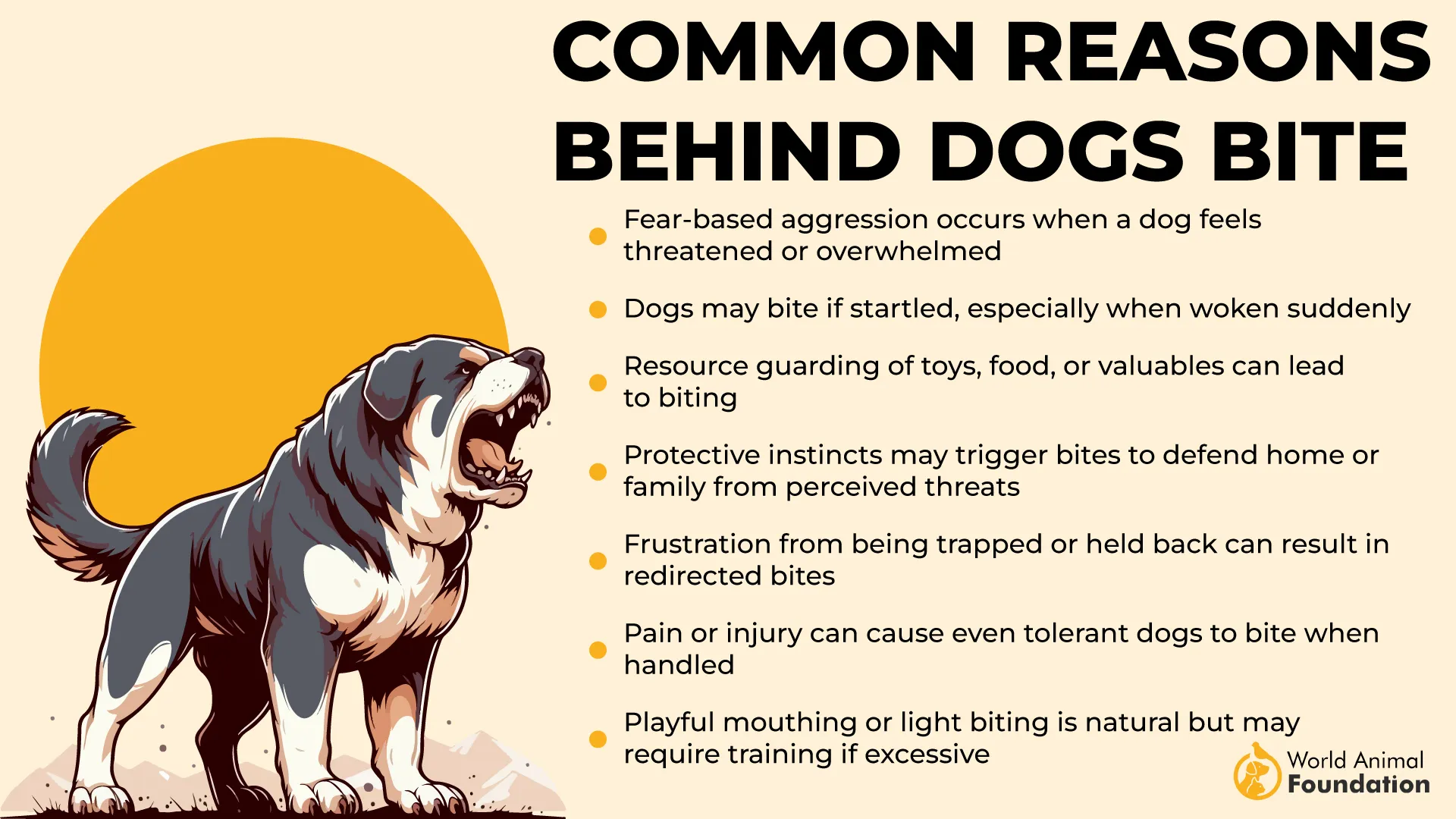
Don’t do well with rough play or hyper environments
Struggle with small kids and small-sized puppies
Chow Chows are best for quiet, adult-only homes. Loud noises, clingy children, too much love? Nah… they would rather be just left alone.
6. Rottweiler
Yep, the infamous Rottie. They are strong, loyal, and known for that signature glare that can scare off any stranger, but they are not the best match for family living. They are the top guard dogs you can ask for, but those protective instincts can turn into a danger if some innocent children are in the way.
Why are they not great for families?
Can be overly protective to the point of being dangerous
Need intense training and socialization from an early age
Not recommended for homes with small kids or other small dog breeds
Their bite force is no joke
With powerful and energetic dogs like Rottweilers, one wrong move… or an innocent game of tag gone wild… can lead to serious trouble. Great for home security, not so great for sleepovers and chaos.
7. Cane Corso
If “intimidating bodyguard in fur” were a breed, this would be it. Cane Corsos are an Italian Mastiff-type breed, which were born to guard property and people. They don’t mess around and have a strong sense of territory.
Why are they not great for families?
Extremely territorial. Strangers, beware!!
Needs consistent training to avoid dominance issues
Not suited for many families with young kids
Can react harshly to sudden movements or loud sounds
These dogs mean well… but they are built for home security, not family playtime. They need confident owners who know what they are doing, not first-time pet parents. Maybe a house with older children is fine for them. Still, they would need training and proper socialization from a young age.
Conclusion
Not every dog needs bite training or bark alerts to be amazing. But when you pick a guard dog, don’t just look at a keen sense of strength and loyalty and wagging tails, look at how that dog adjusts into your family’s lifestyle.
If you are exploring options for other guard dogs, you can review many dog breeds such as Australian Cattle Dog, Australian Shepherd, Chesapeake Bay Retriever, Pit Bulls, Labrador Retriever, etc. But again, see which dog breed is fit for strong bonds with the family.
Do your research, know your home, and find a dog who will be just as gentle with your kids as they are fierce with strangers.
(And maybe…. just maybe…. skip the lion dog who hates hugs).


